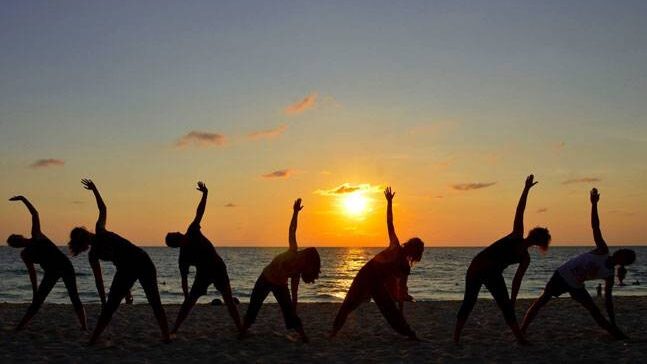Wellness tourism is rapidly emerging as a key segment of the travel industry in the Gulf Cooperation Council (GCC) region. With an increasing focus on health, well-being, and sustainable tourism, GCC countries—especially the United Arab Emirates (UAE), Saudi Arabia, and Qatar—are investing heavily in wellness infrastructure to attract both regional and international visitors. The growing demand for holistic wellness experiences, combined with government support and private-sector investments, is positioning the GCC as a premier destination for wellness tourism.
Key Drivers of Wellness Tourism Growth in the GCC
1. Government Support and Vision 2030 Initiatives
Many GCC nations have integrated wellness tourism into their long-term economic and tourism strategies. Saudi Arabia’s Vision 2030, for example, places a strong emphasis on developing tourism beyond religious travel, with significant investments in luxury resorts, medical wellness centers, and sustainable tourism projects.
- The UAE has also prioritized wellness tourism through initiatives such as Dubai Health Experience (DXH), which promotes the city as a global health and wellness hub.
- Saudi Arabia’s NEOM project, particularly the Oxagon and Trojena regions, will feature world-class wellness resorts focusing on rejuvenation, mindfulness, and eco-friendly experiences.
- Qatar is expanding its high-end wellness offerings with resorts like Zulal Wellness Resort, which blends traditional Arabic medicine with modern wellness treatments.
2. Growing Demand for Holistic and Preventive Wellness
As global awareness of self-care and preventive healthcare rises, more travelers are seeking destinations that offer comprehensive wellness experiences. Wellness tourism in the GCC now goes beyond traditional spa retreats to include:
- Detox and Rejuvenation Retreats: Featuring customized nutrition plans, fitness programs, and alternative healing therapies such as Ayurveda and acupuncture.
- Mindfulness and Spiritual Wellness: Meditation centers, yoga retreats, and nature therapy experiences in serene desert and coastal locations.
- Medical Wellness and Longevity Clinics: Advanced anti-aging treatments, stress management programs, and state-of-the-art wellness diagnostics.
Luxury hospitality brands in the GCC have recognized this trend and are increasingly curating bespoke wellness packages for high-net-worth travelers. Many five-star hotels now offer specialized wellness rooms equipped with air purification systems, circadian lighting, and sleep-enhancing amenities.
3. Expansion of Luxury Wellness Resorts and Medical Tourism
GCC nations are witnessing a boom in luxury wellness resorts that blend traditional healing practices with cutting-edge wellness technologies. Some key examples include:
- Zoya Health & Wellbeing Resort (UAE): A holistic retreat focusing on fasting, detoxification, and rejuvenation therapies.
- The Retreat Palm Dubai (UAE): A luxury wellness hotel offering spa treatments, stress-relief programs, and mind-body wellness activities.
- Sha Wellness Clinic (Saudi Arabia – upcoming): A high-end medical wellness resort combining integrative medicine with holistic therapies.
Medical tourism is also flourishing in the region, with leading hospitals and wellness centers catering to international visitors seeking high-quality healthcare services in luxurious settings. The Dubai Health Authority (DHA) has launched initiatives to enhance Dubai’s reputation as a medical and wellness tourism hub, attracting patients seeking premium healthcare combined with leisure and relaxation.
4. Cultural and Islamic Wellness Tourism
The GCC has a unique opportunity to promote wellness tourism that aligns with Islamic principles and cultural traditions. Many wellness resorts now offer:
- Halal-friendly spa experiences with separate facilities for men and women.
- Traditional Arabic and Islamic medicine (Prophetic medicine) treatments, including Hijama (cupping therapy) and herbal remedies.
- Faith-based wellness retreats in locations like Madinah, AlUla, and the Empty Quarter, where visitors can engage in spiritual rejuvenation alongside physical wellness.
5. Sustainability and Eco-Wellness Tourism
With a growing emphasis on sustainability, eco-wellness tourism is becoming a major trend in the GCC. Many new developments incorporate environmentally friendly practices, such as:
- Desert and nature retreats: Wellness escapes in serene locations like the Liwa Desert (UAE) and AlUla (Saudi Arabia) that offer meditation, yoga, and eco-friendly accommodations.
- Marine wellness experiences: Luxury resorts in the Red Sea and Arabian Gulf promoting marine-based therapies, underwater meditation sessions, and sustainable spa treatments.
- Green wellness resorts: Properties incorporating renewable energy, organic farming, and nature-inspired wellness activities to promote holistic well-being.
Future Outlook: The GCC as a Global Wellness Tourism Hub
The wellness tourism sector in the GCC is poised for significant growth, driven by increasing consumer demand for premium wellness experiences, government investments, and a shift toward sustainable travel. As the region continues to develop world-class wellness resorts, medical tourism facilities, and nature-based wellness retreats, it is set to become a major global player in the wellness tourism industry.
Do follow gulf magazine on Instagram



